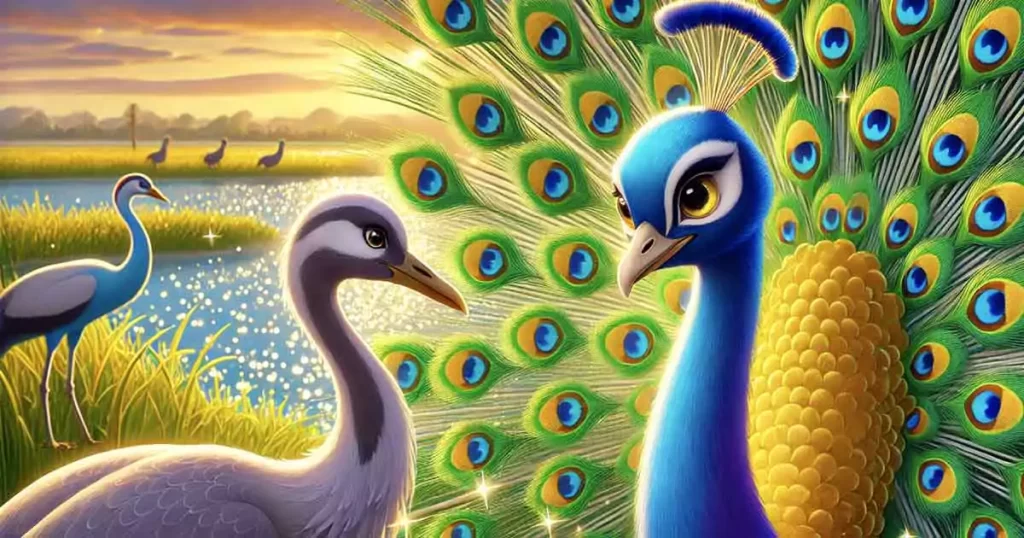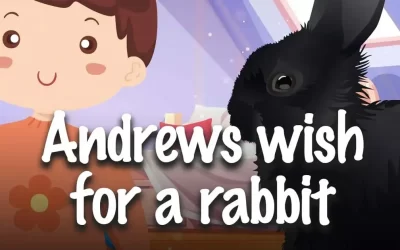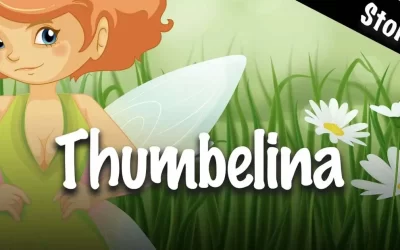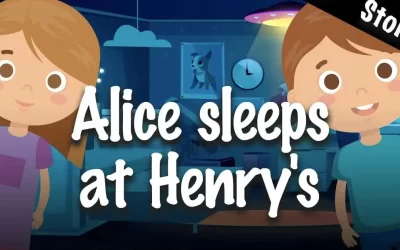
Once upon a time, in a peaceful valley by a sparkling river, there lived a peacock known far and wide for his dazzling feathers. Every morning, as the sun rose, the peacock would strut along the riverbank, spreading his tail into a magnificent fan of shimmering blues, greens, and golds. The other animals would often stop to admire his beauty, whispering, “What a splendid bird!”
The peacock basked in the attention, his head held high. But deep down, he believed his beauty made him better than everyone else.
One quiet afternoon, as the peacock admired his reflection in the water, he noticed a shadow overhead. Looking up, he saw a crane gracefully gliding through the sky. The crane’s wings stretched wide, strong, and steady, though its feathers were plain and gray.
“Hello there, plain fellow,” the peacock called out with a smirk. “Why don’t you come down and admire true beauty for a change?”
The crane gently landed by the riverbank and looked at the peacock with a calm gaze. “What do you mean by true beauty?” the crane asked.
The peacock gave a proud shake of his tail, making the colorful feathers shimmer like jewels.
“Look at me!” he said. “My feathers are finer than any treasure in the world. Just see how they catch the sunlight! You, on the other hand, look as dull as a stone.”
The crane remained unbothered by the insult and replied with a soft smile. “Your feathers are indeed dazzling, peacock. But answer me this—can you fly to the clouds and beyond, where the sky meets the horizon?”
The peacock frowned. “Fly?” he scoffed. “Who needs to fly when one can stand here and be admired?”
The crane spread his long, strong wings and leapt into the sky. With each steady flap, he rose higher and higher until he became a silhouette against the golden afternoon sky. From above, the crane called down:
“My feathers may not shine like yours, but they carry me to places where your beauty could never take you.”
The peacock watched in silence as the crane soared freely above rivers, forests, and distant hills. A wave of understanding washed over him. His feathers were beautiful, yes—but they could not grant him freedom or purpose.
The crane returned gracefully to the ground and looked kindly at the peacock.
“True worth, my friend,” said the crane, “is not found in appearances, but in what we can do, how we live, and where our wings—whether real or imagined—can take us.”
The peacock nodded slowly, humbled by the crane’s wisdom. That evening, as the sun dipped below the hills, the peacock tucked his grand feathers away and sat quietly by the river, pondering what it meant to live a life of meaning rather than one of admiration.
And from that day on, the peacock no longer strutted for attention, but instead listened, learned, and dreamed of ways to broaden his world—beyond what could be seen in his own reflection.
Wanna read more short bedtime stories?
Wanna read more once upon a time stories?


